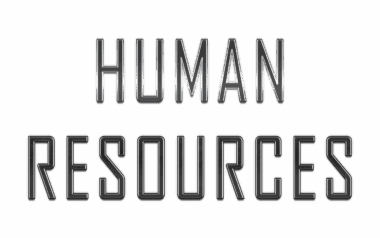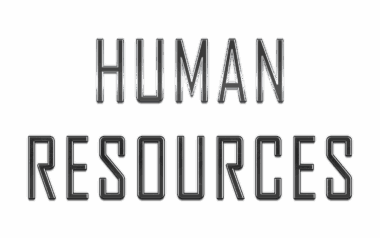Managing Remote and Hybrid Teams
Managing remote and hybrid teams through effective HR communities within the financial sector is vital to achieve success. These communities foster connections among employees, allowing for knowledge sharing and collaboration despite geographical boundaries. They help create a sense of belonging among professionals who may otherwise feel isolated from their colleagues. Human Resources should focus on leveraging technology to enhance communication, using platforms such as Slack, Microsoft Teams, or Zoom to facilitate this process. By implementing regular check-ins and updates, team leaders can maintain transparency and accountability. Furthermore, it’s essential to create structured opportunities for informal interactions, such as virtual coffee breaks or team-building activities. Incorporating these strategies encourages engagement and nurtures relationships, crucial for remote employees. Building a culture of trust and support is key to successfully nurturing remote teams. Another critical aspect to consider is providing resources for mental health. HR departments should facilitate access to counseling or wellness programs, ensuring employees have the support they need. Implementing these practices in financial sector HR communities will ultimately lead to higher retention rates and better overall performance in a remote working atmosphere.
Fostering Communication and Collaboration
Effective communication and collaboration are essential aspects of managing remote teams within financial sector HR communities. Organizations must prioritize establishing clear communication channels that facilitate regular interactions among team members. Utilize tools such as video conferencing, instant messaging, and project management software for seamless connectivity. Regularly scheduled meetings create a structure for progress updates and project discussions while fostering teamwork. Encouraging employees to share their ideas, experiences, and best practices can lead to innovative solutions. Moreover, team members should feel comfortable voicing their concerns and feedback, promoting an open dialogue. Building diverse teams allows for different perspectives, which can enhance problem-solving. In a financial context, this varied input becomes crucial, given the complex nature of the industry. HR professionals can host workshops and brainstorming sessions online to engage employees actively. Establishing collaborative spaces can also aid included individuals who may feel left out. Virtual spaces or forums where employees can contribute ideas and solutions will help cultivate this environment. Ultimately, a committed focus on communication and collaboration within the HR community is essential as remote work continues to shape modern financial institutions.
Training and Development Opportunities
Providing training and development opportunities is crucial in managing remote and hybrid teams effectively in the financial sector. HR professionals should ensure that employees have access to relevant resources that facilitate skill growth and career advancement, regardless of physical location. Virtual training programs, webinars, and online courses can bridge gaps to knowledge. Moreover, identifying subject matter experts within the organization can help mentor other employees. Implementing a scheduling framework that accommodates various time zones ensures that everyone can benefit from the educational sessions offered. Providing resources tailored to individual learning styles further enhances employee engagement. Creating a mentorship program allows for a more personalized approach to development. By fostering an environment that encourages continuous learning, HR communities can strengthen team competencies. Additionally, consider utilizing gamification within training modules to motivate employees to participate actively. Recognizing achievements and progress during training reinforces a culture of appreciation and growth. By investing in employee development, HR can improve performance overall within teams. A strong focus on learning and growth within financial organizations ultimately leads to higher job satisfaction and better employee retention rates, creating a win-win situation.
Recognizing and Rewarding Achievements
Recognition and reward systems play a vital role in managing remote and hybrid teams effectively in the financial sector. Employees who feel valued are more likely to remain motivated and engaged in their work. HR communities must cultivate a culture that acknowledges both individual and team achievements. Implementing a structured recognition program can significantly boost morale, even in a virtual space. Celebrate milestones, accomplishments, and contributions through virtual announcements or newsletters to ensure all members feel included in the success. Publicly recognizing achievements not only boosts the individual’s confidence but also encourages others to strive for excellence. Additionally, consider incorporating gamification elements into performance-based rewards to foster a healthy sense of competition. Offering incentives such as bonuses, extra time off, or personalized gifts can also be beneficial. Conducting regular surveys to gather employee feedback about recognition efforts can help HR departments tailor initiatives to meet diverse needs. Remember, fostering this appreciation within HR communities is crucial to maintaining high retention rates. Effective recognition strategies will create an environment where employees feel appreciated and valued, ultimately improving productivity and job satisfaction across remote teams in financial organizations.
Well-being in the workplace is a crucial factor that financial sector HR communities must address. Maintaining a healthy work-life balance is particularly challenging for remote and hybrid employees, making it essential to implement well-being initiatives that promote mental and physical health. Providing access to wellness programs, mental health resources, and flexible work options are effective ways to support employee well-being. HR departments can also organize virtual workshops focused on stress management, mindfulness, and maintaining a healthy lifestyle. Encouraging employees to take regular breaks and disconnect from work during off-hours is vital to prevent burnout. Additionally, consider providing resources for physical wellness, such as fitness classes or gym memberships, even virtually. Establishing an employee assistance program (EAP) ensures that staff members have access to confidential support when needed. HR professionals can further help by encouraging open discussions on mental health to reduce stigma and promote awareness. Creating a supportive community centered around well-being cultivates a positive workplace culture. By prioritizing well-being within financial sector HR communities, businesses can foster higher engagement levels and productivity among remote teams. Ultimately, a focus on employee health will lead to long-term success.
Maintaining a strong company culture is pivotal when managing remote and hybrid teams in the financial sector. HR communities must intentionally cultivate a shared culture and establish common values among employees disconnected by distance. Open channels of communication, regular team meetings, and informal interactions throughout the week can help foster these connections. Establishing a set of core values that resonate within the organization is vital. HR should communicate these values through onboarding programs and all-staff meetings, ensuring everyone understands her purpose. Celebrating cultural events and milestones together virtually further reinforces a sense of unity. Additionally, creating a vibrant employee social network enables colleagues to connect on a personal level. Platforms like virtual coffee mornings offer employees an informal space to engage and bond. Establishing interest-based clubs for various hobbies facilitates these connections. Remember, authenticity is key to establishing a lasting and inclusive culture. Encouraging employees to share their experiences, challenges, and victories brings authenticity to the culture. By prioritizing culture deliberately, financial sector HR communities can develop a strong team spirit despite physical distances, ultimately enhancing overall morale and performance in remote teams.
Finally, evaluating the effectiveness of remote work strategies within financial sector HR communities is essential to continual improvement. Regularly tracking performance metrics and gathering employee feedback provides valuable insights into areas needing enhancement. Conducting comprehensive surveys and focus groups can help HR professionals gauge employee satisfaction levels and identify potential barriers to productivity. Analyzing data can reveal trends and inform decisions that improve remote working experiences. Additionally, holding regular check-ins with team members fosters an environment where employees can share their thoughts openly. Be receptive to feedback and make adjustments accordingly to ensure strategies resonate with employees. Continuous improvement is vital for ensuring a strong HR community is sustained within the financial sector. When employees feel their feedback is valued, they are more likely to engage actively in the culture-building process. Implementing adjustments based on insights ensures optimal conditions for productivity and satisfaction. By cultivating an environment that embraces innovation while addressing challenges, HR can enhance the remote work experience within the financial sector. As remote teams evolve, ongoing evaluation solidifies the foundation for successful management in an ever-changing landscape.
Managing remote and hybrid teams in the financial sector allows human resources communities to create inclusive practices that address unique challenges. HR leaders must cultivate an environment that promotes collaboration through the strategic implementation of technology and effective communication channels. By fostering strong team dynamics, organizations can ensure employee satisfaction and retention, even when roles span various locations. Technology adoption should include diverse platforms for project management, file sharing, and communication to streamline processes. Furthermore, organizing virtual team-building exercises will both strengthen bonds amongst team members and maintain engagement. Importance should also be placed on training and development opportunities to ensure continuous professional growth for all employees, with resources available no matter their location. Regular virtual check-ins are also crucial for maintaining relationships and ensuring accountability. HR professionals should ensure practices highlight every employee’s contributions, celebrating small wins to foster morale within the community. When team members feel appreciated, they are more likely to remain motivated and committed to their work. By emphasizing inclusive practices within remote HR community management, organizations can create an environment leading to higher success rates in an increasingly digital financial landscape.








